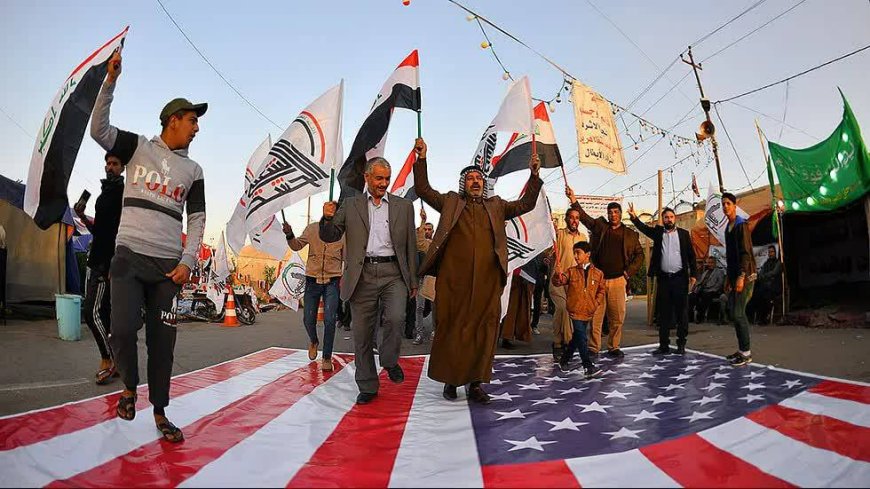From Invasion to Influence: The Application of US Hard Power in Iraq
From Invasion to Influence: The Application of US Hard Power in Iraq

This article explores the effective application of hard power as a means to achieve foreign policy objectives, with a specific focus on the case of US influence in Iraq. By examining the military budgets of powerful nations, it becomes evident that the continuous strengthening of hard power resources is crucial for exerting pressure and influence on other countries. The US military attack on Iraq in 2003 serves as a prominent example of utilising hard power to dominate a nation. This study delves into the motivations behind the US occupation of Iraq and its subsequent efforts to influence and dominate the country's military and security sectors.
US Objectives in Iraq:
Since the occupation of Iraq, the United States has placed a high priority on achieving various goals in the region. These objectives include ensuring the security of energy resources and their transmission, containing Iran's influence, maintaining the security of the Zionist regime, and preventing Baghdad from aligning with rival powers. In order to achieve these objectives, the US has employed existing threats, military capabilities, and security tools to infiltrate Iraq's military structures and layers.
Legal Limitations and Resistance:
Despite the significant influence of the United States in Iraq, the country's parliament approved a decision in January 2020 to expel US forces due to the illegal use of Iraqi territory to carry out targeted assassination operations. This decision was reinforced during strategic talks between the two countries, which agreed that there would be no American forces with a combat role in Iraq until December 31, 2021. However, Washington has made various attempts to circumvent this law and maintain a military presence in Iraq. These attempts include high-level military delegations expressing America's desire for continued military cooperation with Baghdad and Iraqi military commanders visiting the United States at the invitation of the Pentagon.
Continued US Presence in Iraq
Negotiations between Baghdad and Washington have addressed issues such as equipping Iraqi forces with weapons, training, and support and concerns regarding the unclear presence of American soldiers and their deployment areas. The United States has made demands during these negotiations, including the dissolution of the Popular Mobilisation Forces (Al-Hashd al-Shaabi) in exchange for equipping Iraq with military and air weapons. However, the United States' failure to fulfil its promises and its focus on expanding influence in Iraq have been evident, particularly during the ISIS attack on Iraq, where America's role was deemed passive.
US Demands and Iraq's Internal Interests:
In recent years, Iraq's requests for advanced weapons from the United States have been overlooked, while the high costs associated with purchasing and maintaining American weapons have prompted Iraq to seek alternative suppliers. Washington has attempted to prevent Iraq from purchasing weapons from other countries by making demands during negotiations. However, Iraq has been seeking to balance its internal interests and diversify its sources of military equipment.
An examination of the history of US military and security cooperation in Iraq reveals Washington's primary goal of gaining increased influence and preventing the strengthening of Iraq's military sphere. The United States has made concerted efforts to prevent Iraq from aligning with rival powers, considering the country within its sphere of influence due to its significant geopolitical position. Understanding these motivations and dynamics is crucial to comprehending the broader implications of hard power in global politics.












































